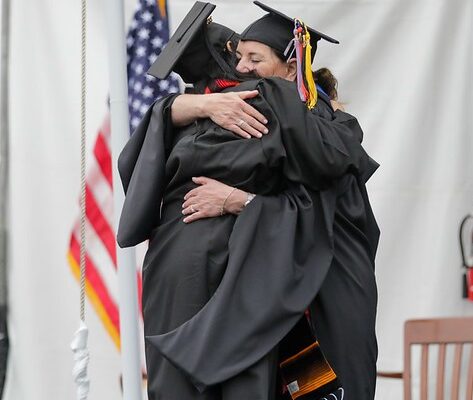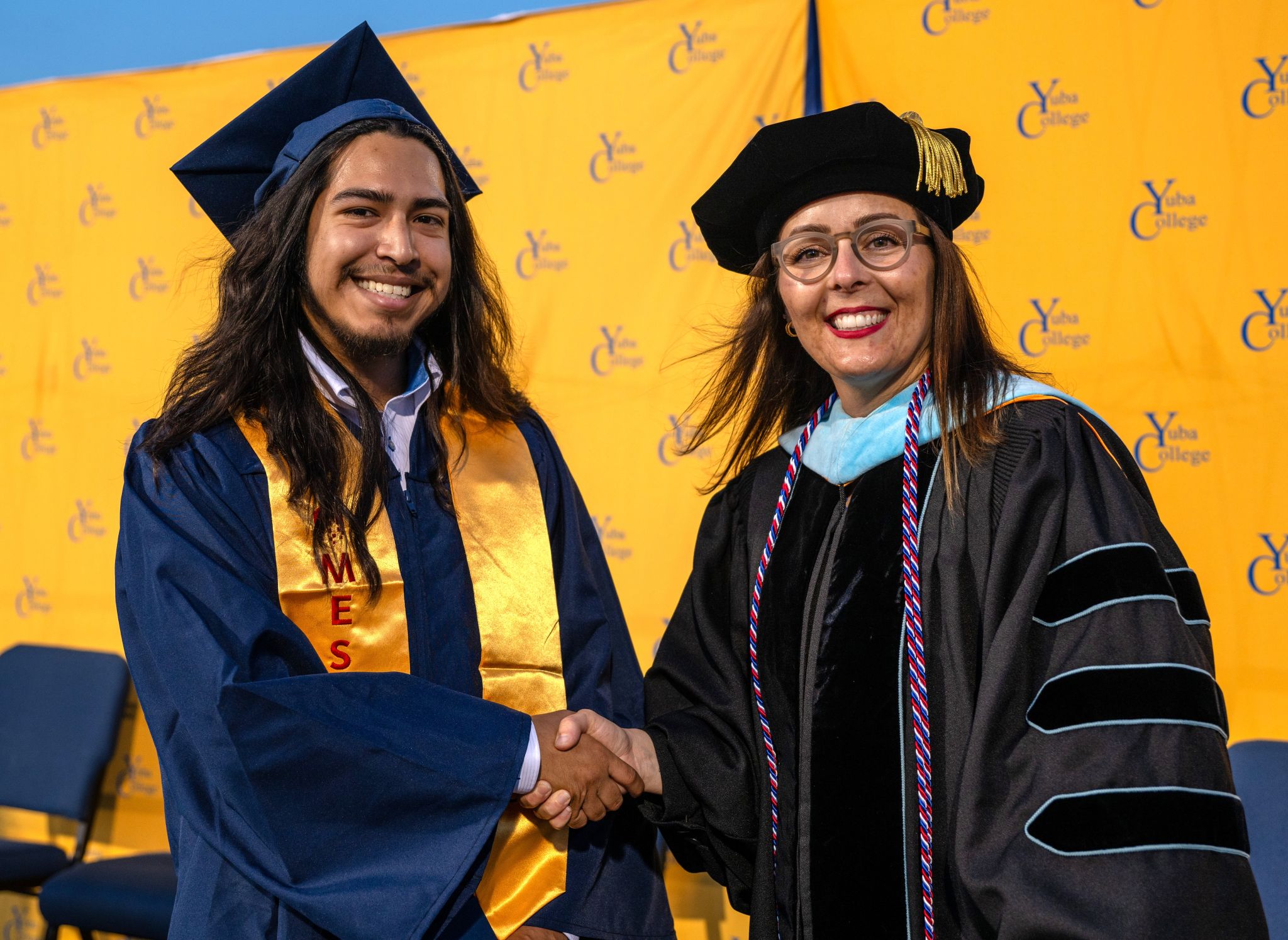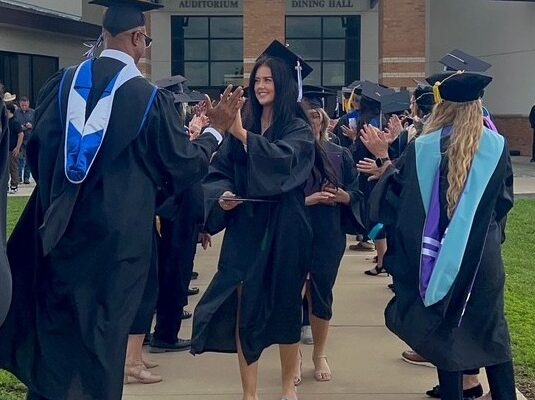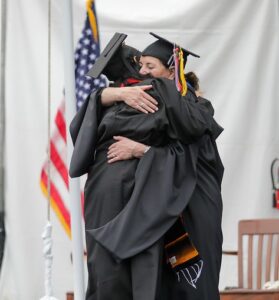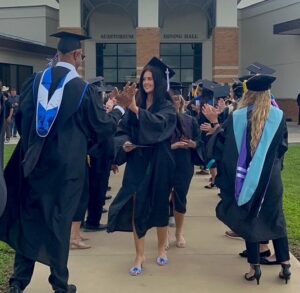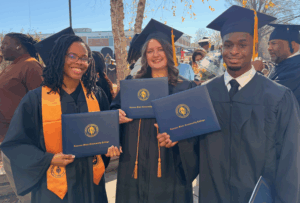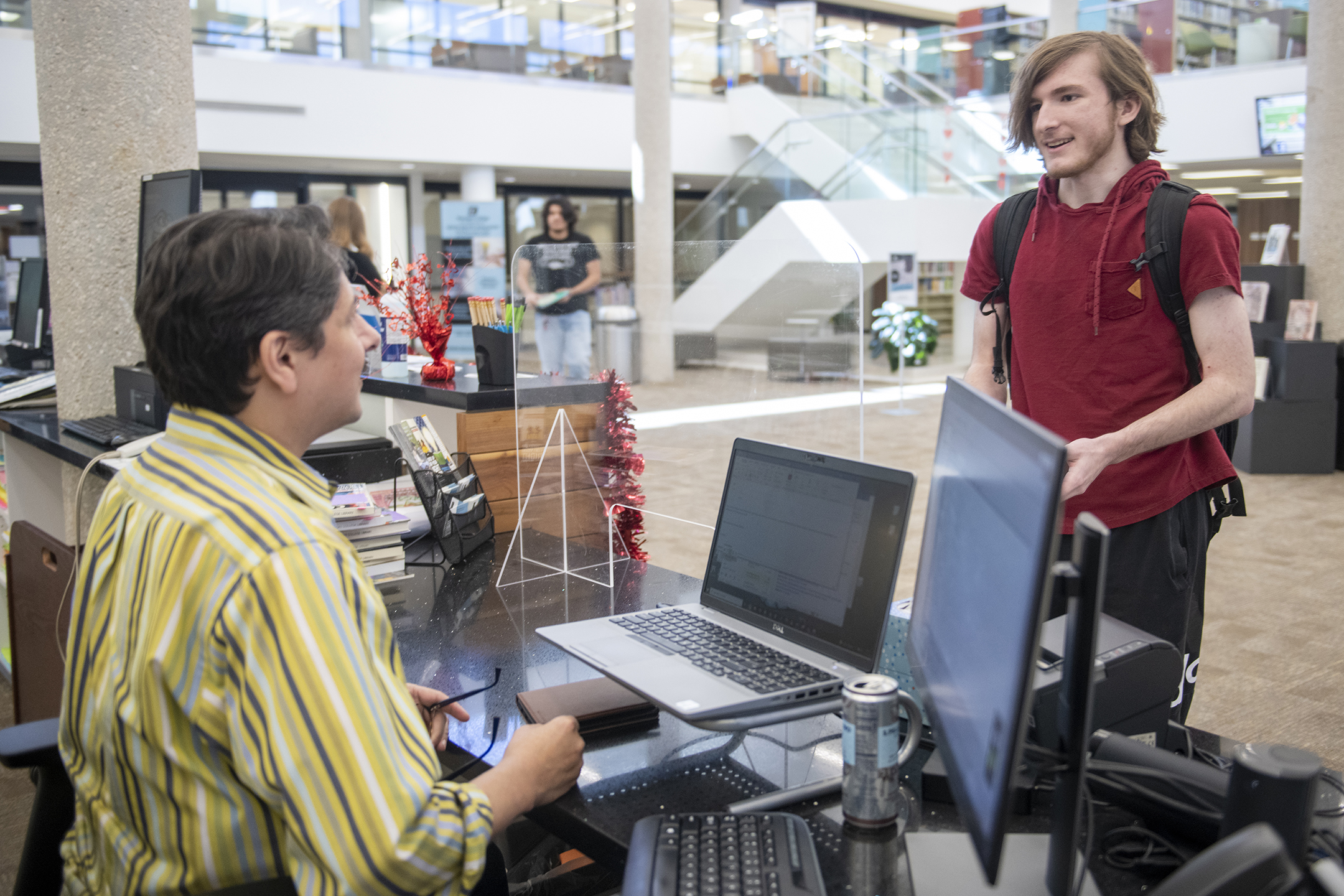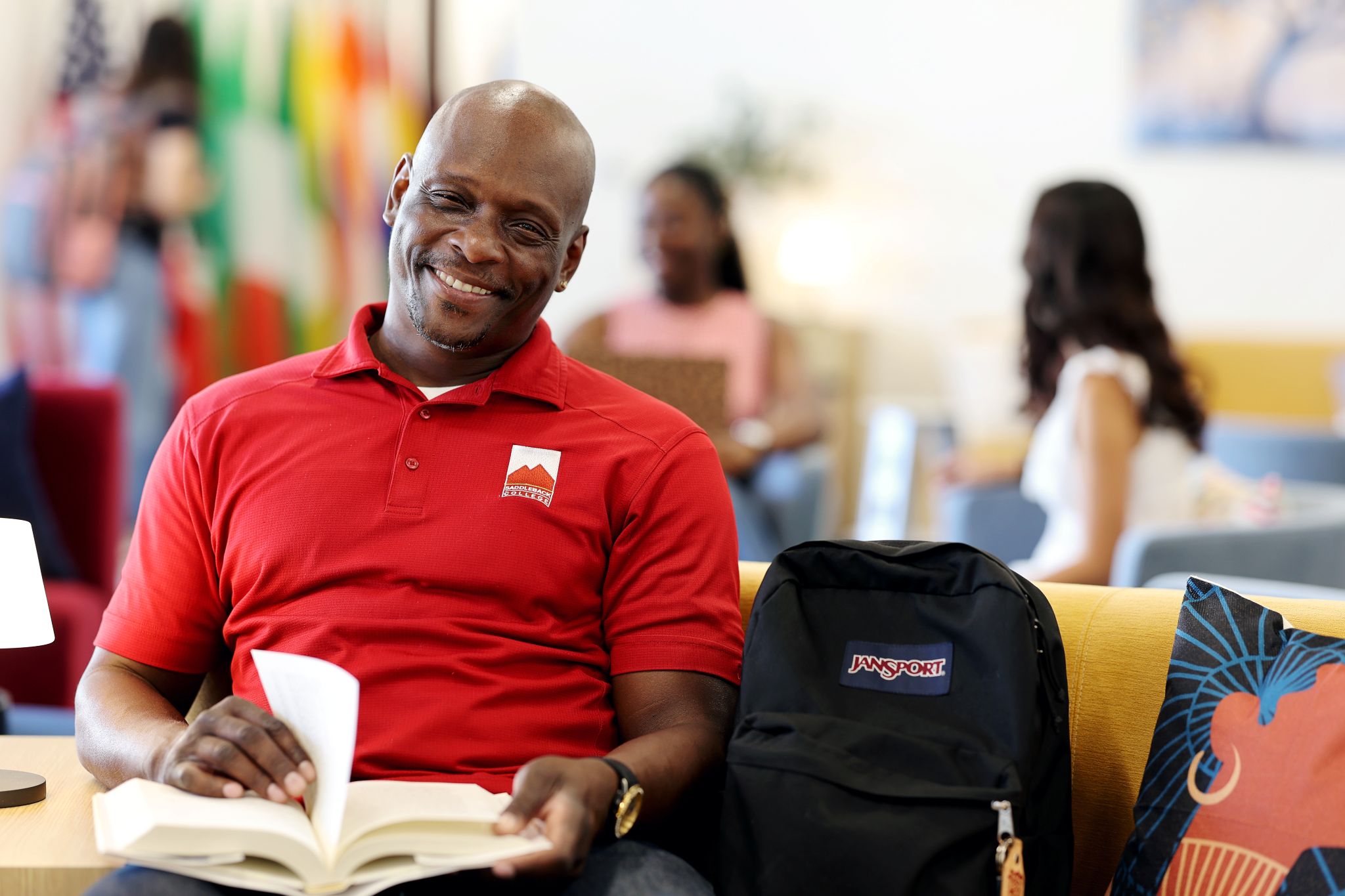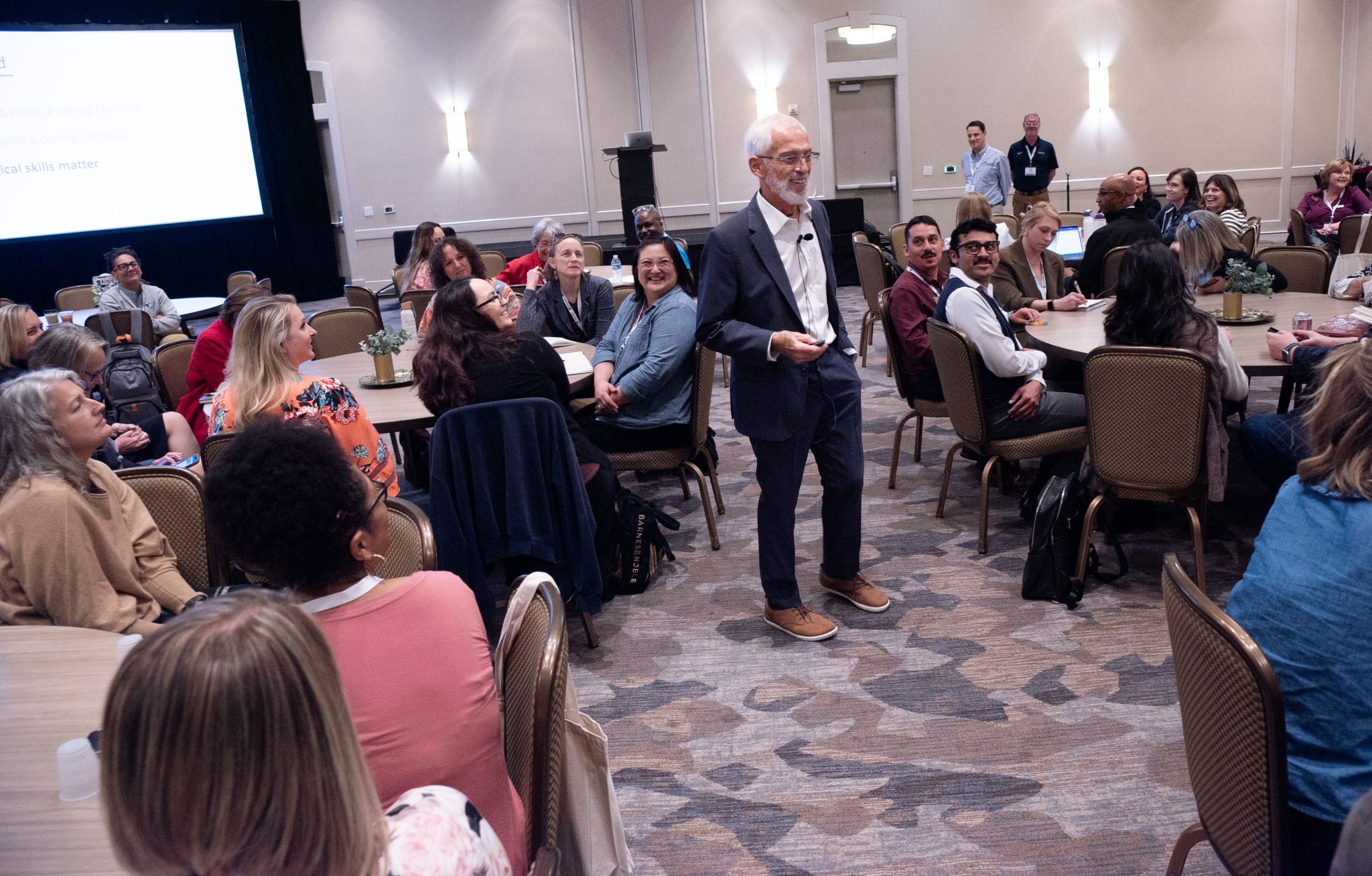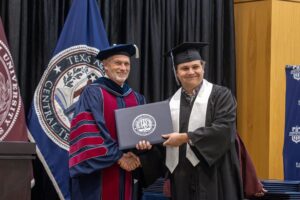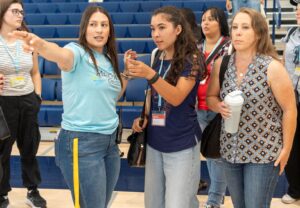Faculty and staff at Los Angeles Pierce College (LAPC) are strengthening a culture centered on human connection, embracing Caring Campus as a framework for intentionally supporting students at a time when higher education is increasingly shaped by technology.
For Yuba College in California, fostering a caring culture is not a short-term strategy – it is a defining part of the institution’s identity. That commitment is reflected in the college’s decision to remain a Caring Campus Network (CCN) member through 2030, reinforcing a long-term investment in connection, belonging, and student success. The CCN offers members access to tools and resources designed to strengthen and sustain cultures of care. Benefits include impactful webinars covering a variety of topics, a robust artifacts database featuring examples from Caring Campus institutions nationwide, discounted Caring Campus conference registration, and eligibility for Caring Campus Certification.
As one of the smallest Caring Campus institutions, Ranger College in Texas has intentionally cultivated a culture of care that removes barriers, builds trust, and strengthens student success. In doing so, the college demonstrates how faculty and staff can create meaningful change regardless of size or geographic location. That commitment to implementing Caring Campus principles and strategies is reflected in everyday moments. Meetings often begin with stories of Random Acts of Kindness witnessed on campus – whether it be faculty members helping students navigate unfamiliar spaces, staff stepping up beyond their job descriptions, or acts of generosity that extend into the surrounding community.
Six community colleges from across the country will help demonstrate the impact of Caring Campus through a quantitative study examining student outcomes and their relationship to a culture of care. Funded by the Lumina Foundation, the study will explore how Caring Campus contributes to student retention, persistence, completion, and overall success. Lawson State Community College in Alabama, Patrick & Henry Community College in Virginia, Oakton College in Illinois, Hartnell College in California, and Temple College and Ranger College in Texas will each participate in the grant-funded study. Together, these colleges will help build a clearer, data-informed understanding of how intentionally fostering connection and belonging influences student outcomes.
A shared commitment to student success is uniting four Texas community colleges – Brazosport College, Clarendon College, Texarkana College, and Hill College – to strengthen campus cultures of care through Caring Campus, with support from the Trellis Foundation. The Trellis Foundation grant, officially completed at the end of December 2025, has been instrumental in launching Caring Campus at each institution, providing the resources needed to train staff, implement proven strategies, and intentionally focus on human connection across campuses. At Brazosport College, leadership has leveraged the support of the Trellis Foundation to implement Caring Campus for staff and has chosen to further extend that commitment by investing institutional funds to bring Caring Campus to faculty as well.
South Orange County Community College District (SOCCCD) is elevating its culture by bringing Caring Campus to the district level, creating a bridge between District Services and the district’s two community colleges, Saddleback College and Irvine Valley College, and fostering a strong partnership that will lead to a fully realized Caring District. As only the second district office to implement Caring Campus in the nation, SOCCCD will ensure care and support flow from District Services to both the colleges and students. This district-level implementation aligns with the district’s strategic plan, approved in June 2026, which calls for cultivating a positive culture and climate for students and employees.
Nearly 200 staff, faculty, and administrators from across the country gathered in San Diego on Nov. 12-14 for three days of connection, collaboration, and fresh thinking at the inaugural Caring Campus Conference: Building a National Culture of Care. The interactive event left attendees inspired and energized, equipped with new ideas, strategies, and tools to strengthen student success efforts on their own campuses. The conference highlighted the impact of Caring Campus, which empowers staff and faculty to cultivate cultures of care that boost student persistence, retention, and success.
Examples of instructors checking on students in distress, custodians offering encouragement during test preparation, classified professionals guiding students toward academic goals, and faculty members learning their students’ names early illustrate how Caring Campus fosters meaningful connections that enhance the student experience. The impact of this work is highlighted in a recent report by The Center for Community College Student Engagement (CCCSE), “Essential Conditions for Community College Student Success: Maximizing Student Engagement by Fostering a Culture of Caring." Caring Campus was founded on research that shows students who feel connected and supported on campus are more likely to persist, stay enrolled, and succeed. The CCCSE report, which drew on survey data from more than 64,000 students across 167 community colleges, reinforces this point, showing that an investment in a culture of care measurably benefits students.
At MiraCosta College in California, staff have made a concerted effort to support student success – an effort that will be further strengthened by the college embarking on a Caring Campus Refresh, re-engaging staff in the principles necessary to create a supportive and caring educational environment for students. From walking a student across campus to ensure they find the right building, to staying with a student until a problem is fully resolved, classified professionals are already creating meaningful interactions that leave lasting impressions. Caring Campus is based on research that shows relationships such as these lead to measurable increases in student persistence, retention, and success.
Texas A&M University – Kingsville (TAMUK) is embracing Caring Campus to strengthen student success – trailblazing as the first Caring Campus university, earning bronze Caring Campus Certification, and preparing to present at the Caring Campus Conference: Building a National Culture of Care, happening Nov. 12-14 in San Diego. TAMUK’s commitment reflects the core tenet of Caring Campus: establishing a welcoming environment where students feel connected leads to greater student retention, persistence, and success.

